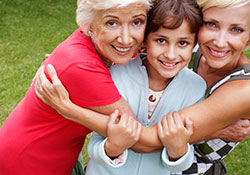Women’s health

Thinkstock/Fuse
Women in Europe are living longer and healthier lives. Important progress has been made in the WHO European Region in relation to gender equality and other social, economic and environmental determinants of women’s health and well-being. Health systems are slowly adapting to address women’s health issues beyond reproduction.
This is the general picture of women’s health in Europe today, but as with all generalities, it masks highs and lows. Some women are ahead of the game, while others are falling behind. Large health inequities among women remain, within and between countries in Europe. Women’s life expectancy across the Region differs by up to 15 years, with certain groups of women continuing to be more exposed and vulnerable to ill health and having lower well-being. The causes of these inequities include the range of determinants of women’s health and well-being and health system responses to women’s needs. Gender inequalities, discrimination and gender stereotypes are important underlying factors influencing behaviour and practices that affect women’s health across their life-course.
Cardiovascular diseases continue to comprise a major part of the overall disease burden for women, but rates of mental ill health are increasing throughout the Region and across all ages. High levels of depression and anxiety among adolescent girls in Europe is of particular concern. Gender-based violence against women remains not only a violation of women’s rights, but also a serious public health problem in all countries in the Region. Well-being is gaining in importance as a concept and measure not only of good health, but also of general societal progress.
Through Health 2020, the WHO European health policy framework, the Region integrates an equity element into its work, reinforcing the principles of non-discrimination, equality and participation, to ensure that every woman and child has the opportunity to fulfil their ambitions and is not held back by their gender. With the adoption of the 2030 Agenda for Sustainable Development and the Sustainable Development Goals (SDGs), governments have made clear the indivisible nature of economic, social and environmental development and reaffirmed human rights, gender equality and women’s empowerment as being crucial to progress on all goals and targets. This means that reaching the targets of SDG3 on health and well-being will be enabled by progress under other SDGs, particularly SDG5 on gender equality and SDG10 on reducing inequalities within and between countries.



